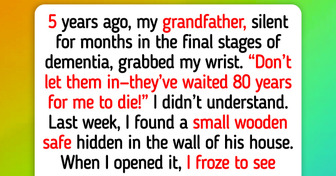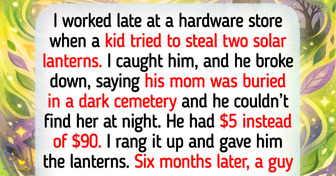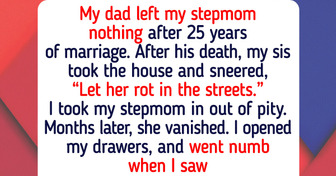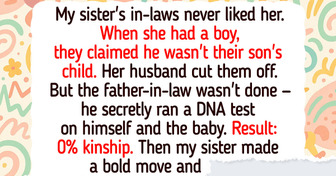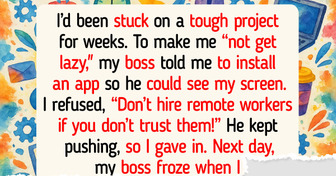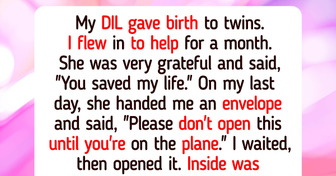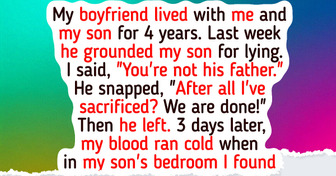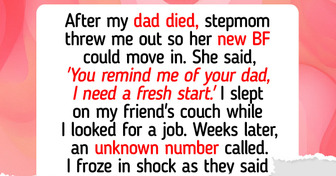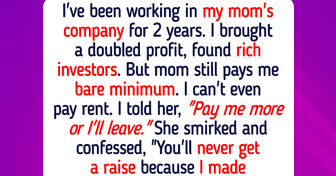My Cousin Uninvited Me to Save Money—My Petty Revenge Was Absolutely Worth It

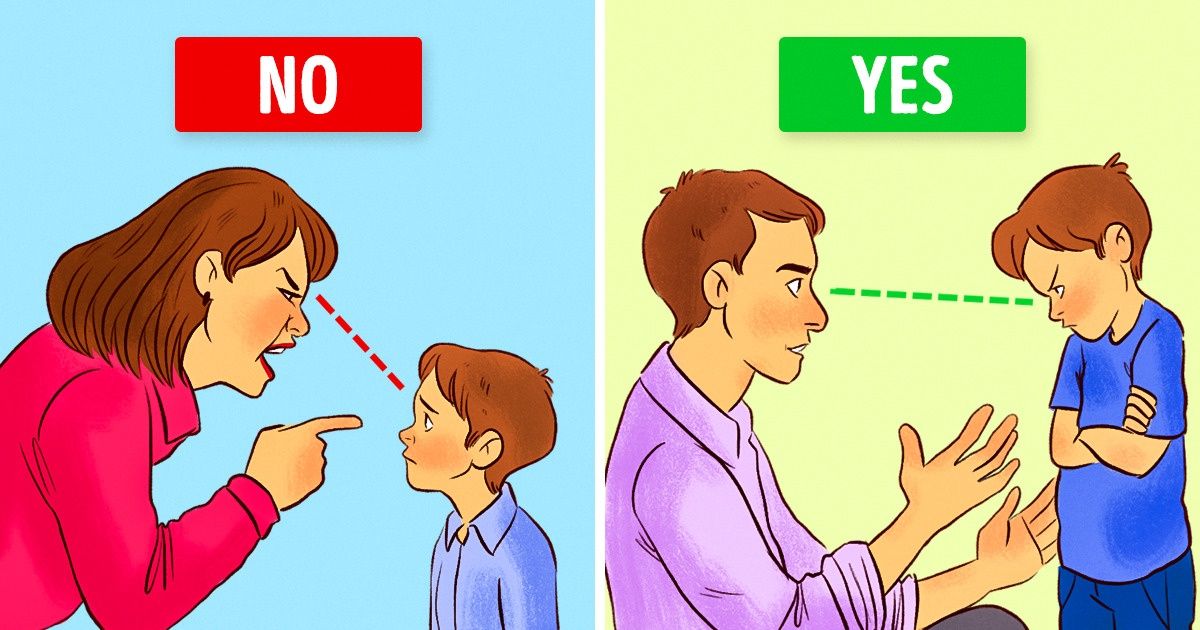
Your kid has always been an angelic person, but suddenly you’ve started to notice that there has been a breakdown in communication. Children might start to talk back in an inappropriate manner and even begin rolling their eyes. Yes, it feels heartbreaking, but parents can find the way out and manage these situations properly in order to build healthy relationships with their kids.
We at Bright Side know how crucial it is to maintain respect in the family and we would like to highlight these 7 steps for how to behave when your child talks back, according to experts.
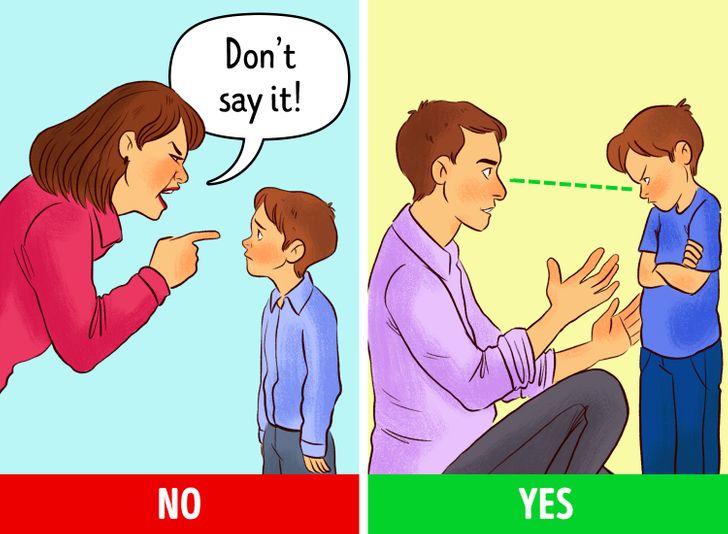
Yes, it’s difficult to stay calm sometimes when your child talks back, but it’s important to monitor your own language. You should try to be the example of how to show respect. Yelling, screaming, or bad words shouldn’t awake the Hulk in you.
At the same time, don’t let your child keep talking back to you. Establish guidelines for expected behavior. React when you hear words like: “Fine,” “Yeah, right,” “Give me a break,” “Whatever.” Tell your child that this reaction needs to stop and give them a chance to correct their behavior. Don’t use such sentences like, “Don’t say it,” and kneel down at your child’s eye level when you talk to them.
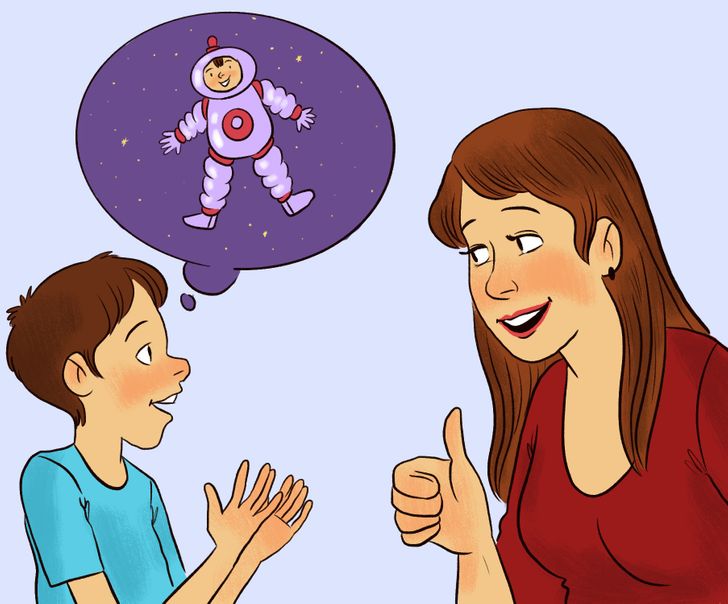
Never forget that your child is still learning how to control their behavior and that sometimes they don’t know how to cope with problems. So, it’s normal when they show a lack of patience. After setting limits when it comes to their tone, try to understand what problem they have. Often when a child talks back, they are expressing anger, frustration, hurt, or fear.
Be sure you spend at least 15 minutes alone with each child every day, giving them your focused, positive attention. Try to understand their needs, hopes, and dreams. Maybe your child is interested in studying the universe and you’ve never taken them to a planetarium.
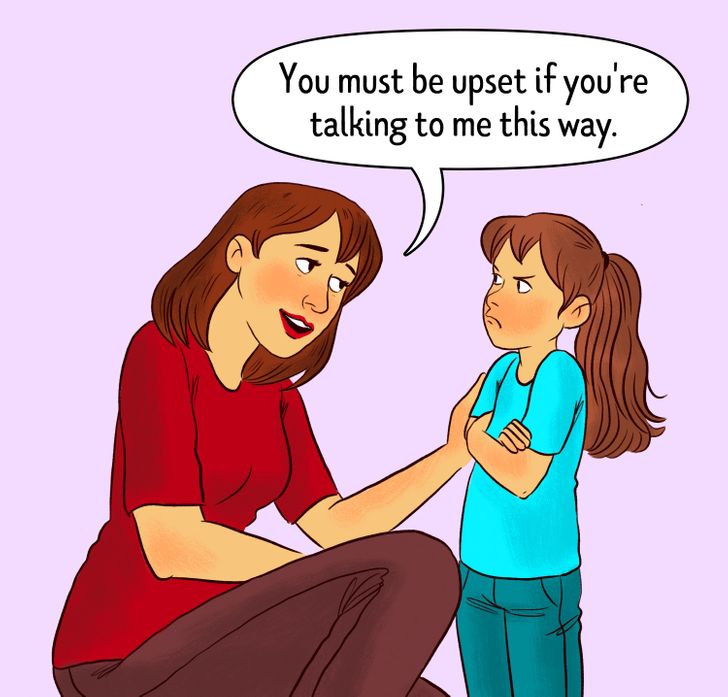
Psychologists suggest using sentences like: “Ouch! Those words sound like they’re meant to hurt. You must be upset if you’re speaking to me that way.” Or “I want to hear more about this, but I can’t listen when I feel attacked.” Then suggest discussing the problem once you’ve both had a chance to calm down if your child is still yelling at you.
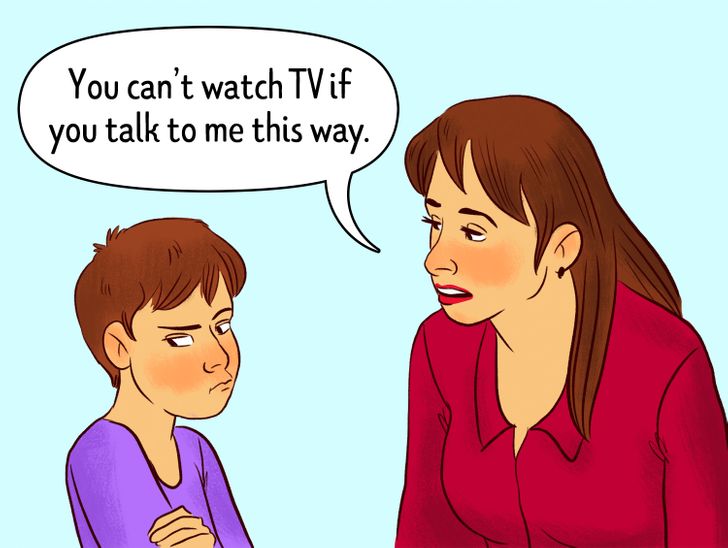
Kids should see how being polite can be beneficial to them. Each bad word or eye-roll shouldn’t be ignored. Sometimes it can take a few reminders, even after acknowledging the problem of your kid’s bad mood.
Your child should know what to expect each time they talk back, so be always specific and show that you’re not OK with disrespect. Also, you can show the consequences of bad behavior by adding extra chores or cutting TV or computer time: “When you decide to speak to me like that, you don’t get to go on your playdate.” In this case, they will consider it serious. But don’t forget to keep your promises if the child doesn’t stop talking back.
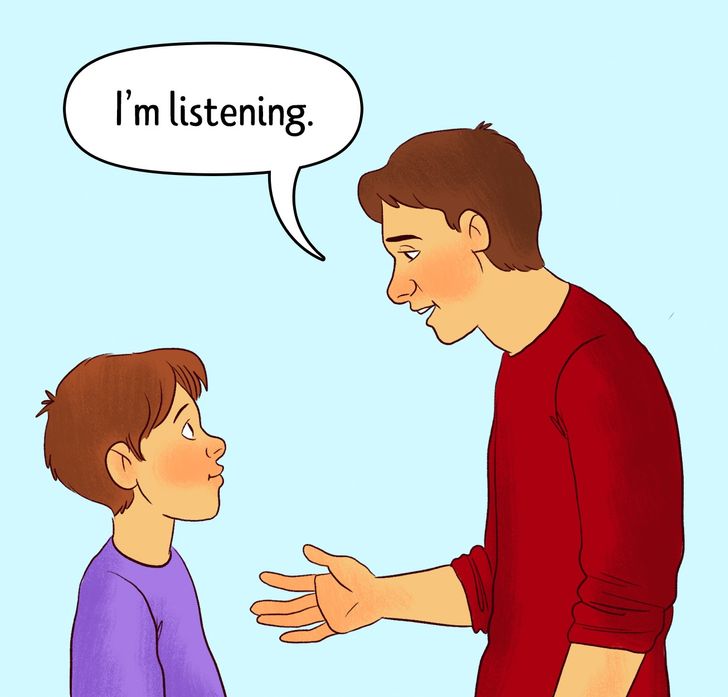
Remember, if children express their opinion about something, it’s good. But they should do it in a friendly way. And also, they should know that they have a safe space to do this. It’s better to not stop them or cut them off when they are trying to explain what they actually think.
Listen and pay attention to what kind of problem they have. It’s crucial to show empathy and understanding, so your child won’t consider you an enemy.
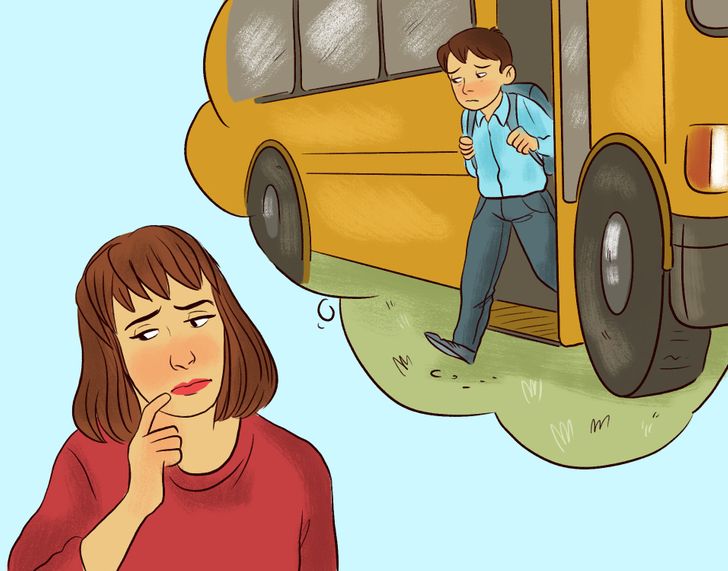
If you’ve noticed any patterns around when your child talks back, this can be a good thing. If not, think deeply about when these things usually happen. Maybe your kid comes back from school every day in a bad mood. This can be the key to solving a big problem and avoiding worse consequences in the future.
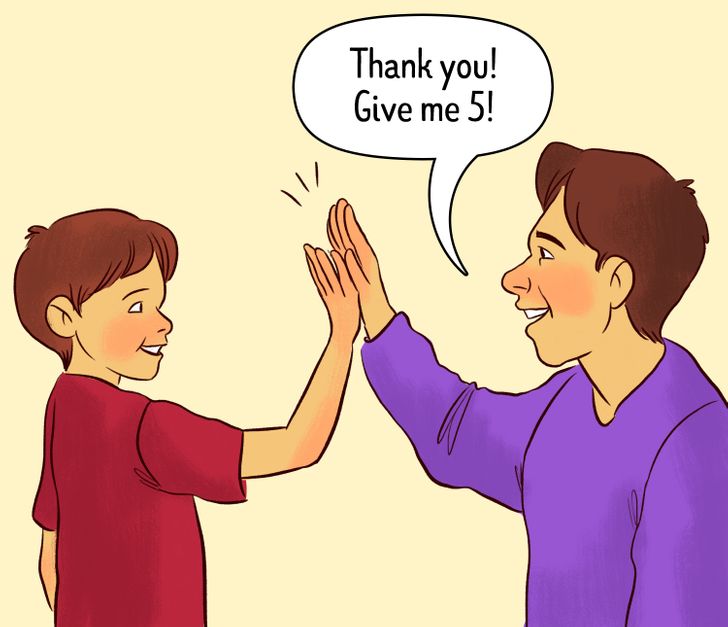
Everyone likes to feel appreciated and your kids are no exception. If you see that your kid has started to stop talking back and is showing you gratitude, you can give them a hug, a compliment, or even a “thank you.”
But at the same time, be sure that kids understand that being friendly doesn’t mean that they can get anything they want.
How often do you or your kid say the word “whatever”? Is it difficult for you to set limits or say, “No,” to your child?


